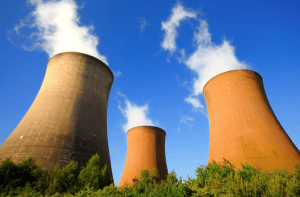Ghana completes first phase of Nuclear Power Programme
 Ghana has achieved success in all the 19 infrastructural issues to be considered prior to the commencement of the operation of a Nuclear Power Programme (NPP).
Ghana has achieved success in all the 19 infrastructural issues to be considered prior to the commencement of the operation of a Nuclear Power Programme (NPP).
This more or less completes the first of the three phases of the International Atomic Energy Agency (IAEA) required milestone approaches for every newcomer country to achieve before the development of a national infrastructure for nuclear power.
The other two phases involve the preparatory work for the construction of a nuclear power plant after a policy decision has been taken, and finally ensuring activities to implement a first nuclear power plant.
The 19 infrastructural issues involves; the national position, nuclear safety, management, funding and financing, legislative frameworks, safeguard issues, radiation protection, regulatory frameworks, electric grid, and human resource development.
The rest are stakeholder involvement, site and supporting facilities, environmental protection, emergency planning, security and physical protection, nuclear fuel cycle, radioactive waste, industrial involvement, as well as procurement issues.
Professor Benjamin Jabez Narko, the Director-General of the Ghana Atomic Energy Commission (GAEC), who disclosed this in an interview with the Ghana News Agency, said the aim of achieving successes in these milestones, was to help IAEA member states to understand the commitment and obligations associated with developing a Nuclear Power Programme.
He said all the necessary legislations and regulatory frameworks including the passage of the Nuclear Regulatory Bill that established the Ghana Nuclear Regulatory Authority, as well as the Ghana Nuclear Power Programme Organisations which was tasked to coordinate, oversee and administer the phase to phase implementation of the Nuclear Power Programme have been achieved.
Other activities involving the other infrastructural issues especially with regards to human resource capacity development, funding and financing, electric grid, siting, emergency planning, managing the nuclear fuel cycle as well as radioactive waste, among other safety measures, were also being diligently pursued.
“We have met with industry players and stakeholders across all key sectors, and we are being advised by our lawyers on land and other legislative and regulatory issues as well”, he said.
He said with the successes achieved so far, Ghana was set to submit herself to an international peer review programme from January 16 to 23, 2017 in Accra, to be conducted by a team from the Integrated Nuclear Infrastructure Review (INIR) Mission, made up of experts who have direct experience in specialized nuclear infrastructure areas, as well as specialized IAEA staff.
Prof Nyarko said building on the country’s documentation on an earlier self-evaluation, the mission team would review the infrastructure status through interviews with the various subject team leads, site visits and document reviews, and make suggestions and recommendations in a report to the country, enabling it to address the identified gaps if any, in accordance with the national action plan.
“In the long term, Ghana may be expected to become one of the countries that make use of nuclear power. This will help overcome energy shortage, as well as provide a necessary impetus for economic development in the country”, he said.
Prof Nyarko said although nuclear energy offers the opportunity to grow greener economies, and provides a cheaper and sustainable alternative to other sources of power for both domestic and industrial uses, the country was not in a rush to compromise on safety standards in spite of these benefits but would follow the required procedures to ensure the achievement of a comprehensive Nuclear Power Programme.
Source: GNA
